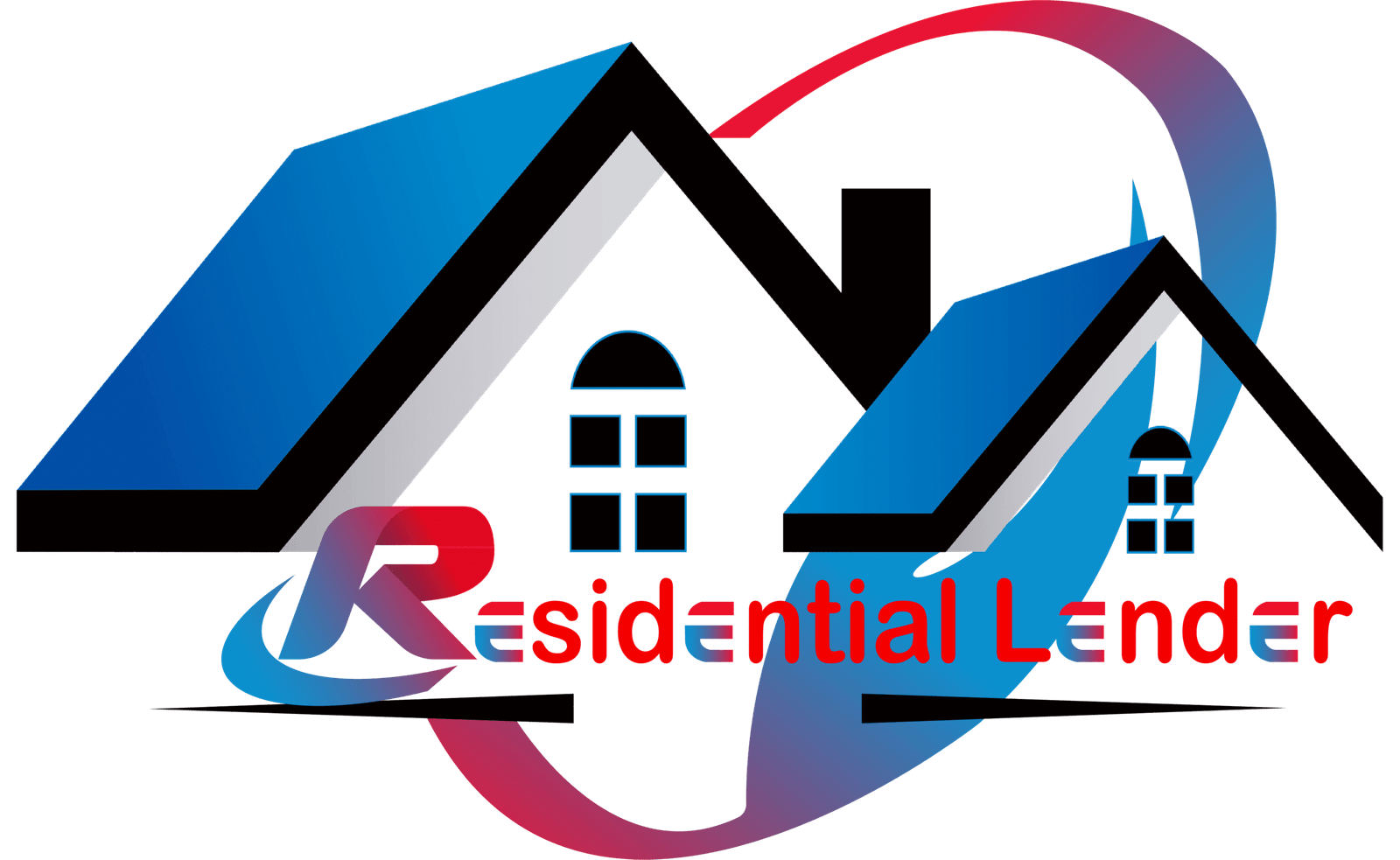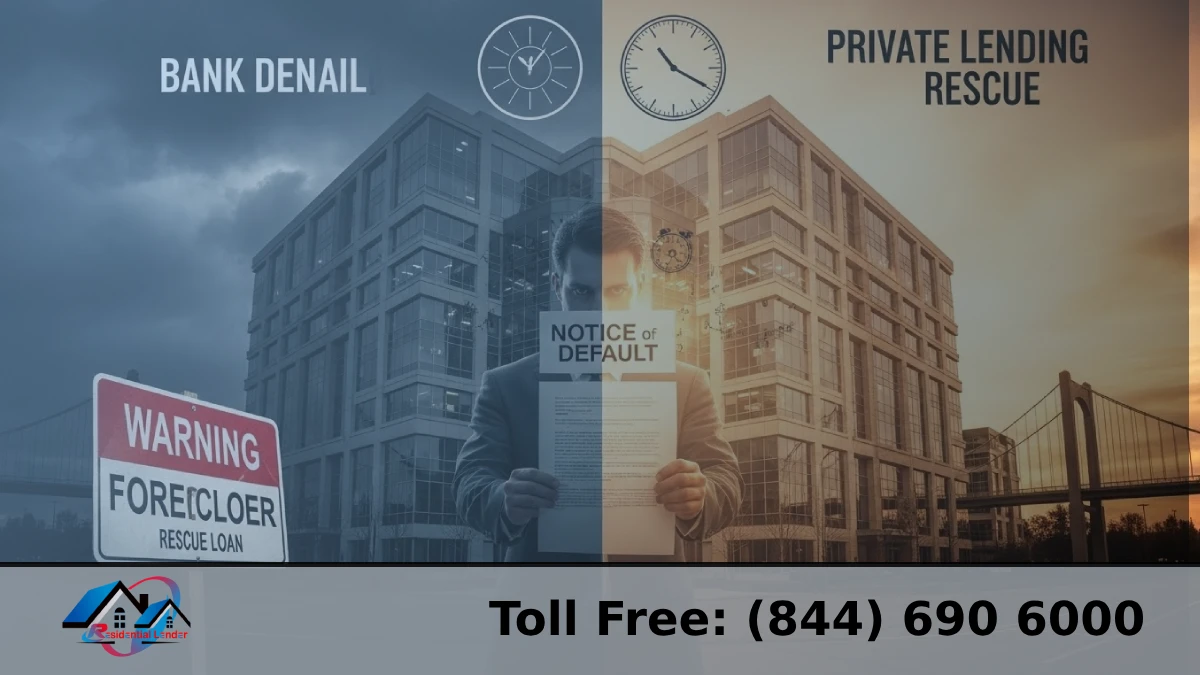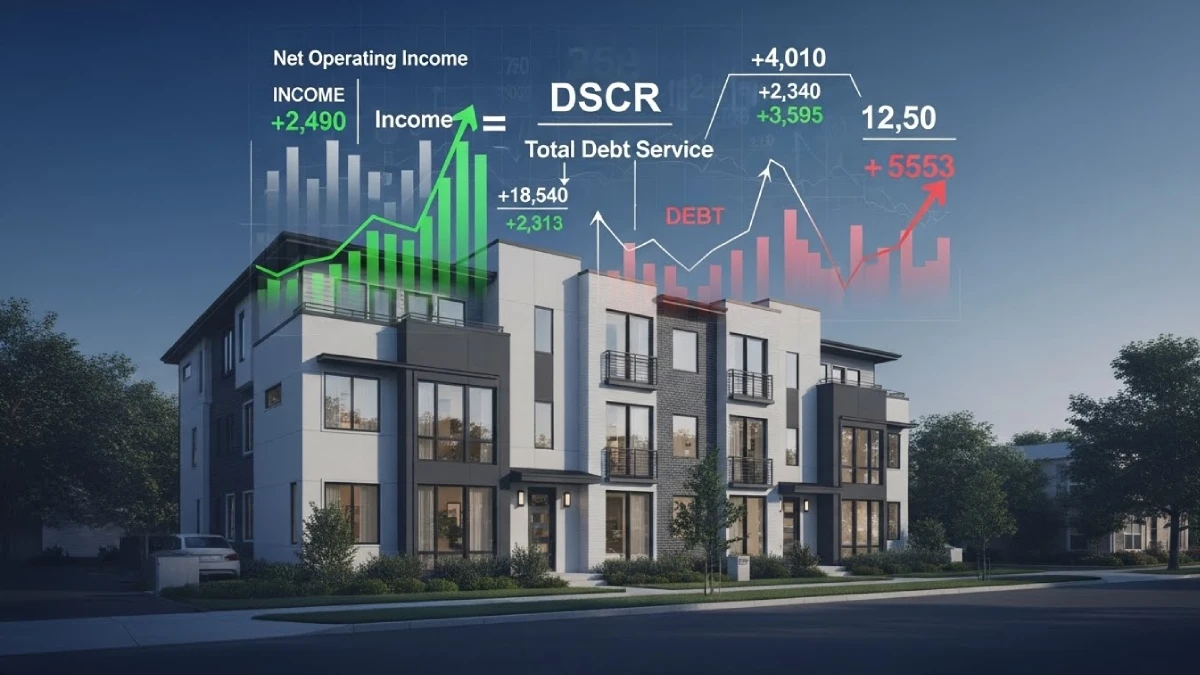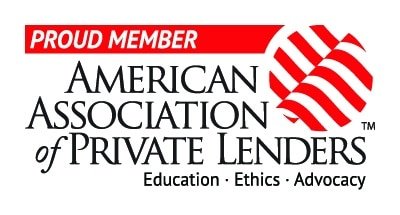Looking for quick and flexible financing to buy your next rental property? The US led the way in investment property financing in 2023 with $100 billion in challenge money loans. In a hurry, buyers must pick $50 billion. Traditional mortgages are suitable for long-term rentals, but they can be slow and rigid for dealing in real estate, especially for homes that you want to fix up and then sell or keep.
A “hard money lender for real estate” is a beneficial person in this situation. It’s possible to obtain a short-term loan, known as a “hard money loan,” based on the value of an investment property rather than the borrower’s creditworthiness.
This blog post aims to help real estate investors understand the ins and outs of hard money loans by shedding light on key considerations when choosing a “hard money lender.” We will delve into the specifics of how hard money loans work, discuss their key benefits, and explore the potential problems that may arise.
We have a strong network of 200 private lenders and 30 years of experience as underwriters, so we are well-versed in the diverse financial needs of real estate buyers.
What is a Hard Money Loan and How Does a Hard Money Loan Work?
What is it?
A hard money loan is a short-term, asset-based private money loan that is mainly backed by real estate and is meant to be used for real estate investments. For traditional loans, the borrower’s credit score and financial background are significant. But for a hard money loan, the property itself and its potential are what matter. Because of this, they are especially appealing to investors looking for chances that might not meet the requirements for traditional loans. Hard money loans typically have significantly shorter terms than conventional mortgages. Term lengths are usually between a few months and two years.
How a Hard Money Loan Works
The best thing about a hard money loan is how quickly it can be paid back. While it can take months with a traditional loan, investors can expect approval and closing times that are much faster. Often, they can happen within days or a couple of weeks. When it comes to hard money loans, collateral is significant. The loan amount is based on the property’s After Repair Value (ARV), or current market value, rather than your credit score. Lenders can quickly approve loans with this asset-centered method.
It’s important to know that hard money loans usually have higher interest rates because the lender is taking on more risk in exchange for the speed and freedom they offer. Quick-turnaround projects like fix-and-flip, fix-and-hold, and fix-and-rent homes are common ways to use these loans. They are also great for mixed-use, multifamily, and rental buildings as investments. Finally, they can be used as bridge loans to fill in short-term funding gaps.
The Pros and Cons of Hard Money Loans for Real Estate Investors
Pros of Hard Money Loans
- Speed: Hard money loans are easy to get and can be paid back quickly. Usually, the loan is closed within a few days or weeks. This speed is essential for real estate buyers in highly competitive markets, where securing financing quickly can make or break a deal.
- Flexibility: Typically, hard money lenders offer more flexibility with loan terms and requirements compared to standard lenders. Banks might be hesitant to give loans to certain types of properties or investors, but they can tailor loan designs to meet those needs.
- Accessibility: Hard money loans are typically easier to obtain, especially when your credit isn’t great or the property is in poor condition and doesn’t meet standard lending criteria. It’s not just about the borrower’s past debts; the attention is on what the asset could do.
- Asset-Focused: The main thing that secures the loan is the land itself. This makes it less dependent on an investor’s personal financial history, making it a good choice for individuals with a good investment opportunity but less-than-perfect personal finances.
- Variety of Properties: Hard money loans are very flexible and can be used for many different types of real estate projects. This includes a range of residential investment properties, business property, multifamily units, mixed-use developments, and even unique projects like loans for new construction.
Cons of Hard Money Loans
- Higher Interest Rate: One of the most significant problems with hard money loans is that the interest rates are usually higher than those on regular mortgages. This premium is due to the lender taking on more risk, as the loan is funded quickly and the borrower’s skills are not closely examined.
- Shorter Loan Terms: Hard money loans are naturally short-term ways to get money, with terms that range from 6 to 24 months for payback. This means you need a straightforward and quick way out, such as selling the house or refinancing with a regular loan, to avoid fines or default.
- Fees: Aside from interest rates, people who want to get hard money loans should also be aware of other costs that come with them. Some of these are origination fees, which are a portion of the loan amount, closing costs that are similar to those for traditional loans, and possibly prepayment penalties if the loan is paid off before the end of the term.
- Lower LTV: Loan-to-Value, or LTV, lenders who work with hard money often offer smaller loan amounts compared to what the property is worth. This means that buyers might need to put down more money or have more stake in the deal.
- Risk: Because hard money loans are short-term and cost a lot, it’s even more important to have a good exit plan. Without a clear plan for paying back the loan, investors risk defaulting, which can have serious financial consequences, including the loss of collateral property.
Key Factors to Consider When Choosing Hard Money Lender for Real Estate
Choosing the right hard money lender for real estate is a crucial step that can significantly impact the success of your project. It’s not enough to get money; you need to work with a trustworthy and skilled financier.
Experience & Reputation
It is always best to go with a hard money lender that has a long history of giving hard money. An experienced lender will have extensive knowledge of the market and understand potential risks. They offer more than just money; they provide valuable insights. Spend some time carefully reading through reviews and quotes from other real estate owners. A strong image built on happy customers who have borrowed money is a clear sign of dependability and trustworthiness.
Loan Terms & Rates
This is where the small stuff often makes the big difference. Compare the higher interest rates, points (an up-front fee of 1% to 3% of the loan amount), and any other fees that come with them carefully. Learn about all of the fees, such as the purchase fees and the closing costs. It is essential to be clear about when the payments are due and if there is a balloon payment at the end of the loan term. Make sure you fully understand all of the loan terms for your individual investment property so that you don’t run into any unpleasant surprises later on.
Funding Speed
How quickly a lender can send money is often a good way to tell if they are a good hard money lender for real estate. In a fierce real estate market, getting a deal quickly can make all the difference between securing a property and missing out on a chance. Find out when they usually close. Some may close in a few days, while others may take a few weeks.
Lending Area
Ensure the hard money loan is suitable for the area you want and that the lender has experience with it. A local hard money lender will know more about the market prices, trends, and rules in your area, which can help you get a better deal on a property and make the loan process go more smoothly.
Communication & Transparency
A trustworthy hard money investor for real estate should be open and honest about all costs, steps, and possible outcomes. There should be no problem getting in touch with them to answer your questions and give you clear answers. Stay away from lenders who aren’t clear or won’t give you all the information you need right away.
Top 7 Hard Money Lenders for Real Estate Investors (A Curated List & Why We’re Different)
There is no such thing as the best hard money lenders for real estate. It depends on your financial needs and the type of property you want to buy. But the best lenders all have a few things in common: they are always dependable, they communicate, they offer cheap loan terms, and they know a lot about the complicated world of real estate investment.
Lender Type 1: The Experienced Underwriter (That’s Us!)
When looking for hard money lenders for real estate, you should give the most weight to lenders with extensive real-world experience. With 30 years of experience as underwriters, we have a deep understanding of various types of home investment properties. We’ve dealt with a lot of different situations and know how to make a deal go smoothly.
A significant advantage is our extensive network of 200 private loans and investors. This lets us offer a range of loan choices and always find the best one for your investment property, even when things are complicated. We are both a table lender and a correspondent lender. As a table lender, we fund loans straight from our capital. As a correspondent lender, we make loans that are then backed by our trusted network. This two-in-one feature helps you by giving you quick, easy, and trustworthy ways to borrow money for your specific job.
Lender Type 2: Specialists in Fix-and-Flip/Fix-and-Rent
Specialized loans can be beneficial for people who want to fix up a house and then sell it or rent it out. These lenders often offer custom loan terms that fit the project’s schedule and cash flow needs. For example, they might offer specific construction loans or a draw schedule for the renovation phases. As experts in these areas, they understand the risks and potential returns, enabling the deals for your rehab projects to proceed more smoothly.
Lender Type 3: Bridging the Gap (Bridge Loans)
There are hard money lenders who are great at giving bridge loans. These are ideal for real estate buyers who need to purchase a house quickly or require short-term funding until they can secure more permanent financing. An emergency loan called a bridge loan can help you close soon on a good deal or keep a property. You work on getting approved for a standard mortgage at the same time.
Lender Type 4: DSCR Loan Experts
If you’re looking to buy rental homes that generate cash, consider lenders specializing in DSCR (Debt Service Coverage Ratio) loans. With these, the property’s expected income, not your income, is the main thing that determines if you can get a loan. This kind of loan is ideal for buyers looking to expand their rental portfolio without negatively impacting their credit.
Lender Type 5: No-Doc/Lite-Doc Options
Some money lenders offer no-doc loans and lite-doc loans for real estate buyers who want to move quickly and with little paperwork. These simplified choices enable faster approvals and deal closings by reducing paperwork. Even though the rates may be a little higher, the ease of use and quick cash can make a big difference for deals that need to be done quickly.
Lender Type 6: Commercial Real Estate Niche
Even though we primarily work with residential investment properties, it’s essential to know that some hard money lenders also work with business investment properties. These lenders understand the complexities of business deals and provide tailored hard money solutions for a range of properties, from office buildings to retail spaces.
Lender Type 7: Investor-Friendly Networks
It can be beneficial to work with networks that include many private loans. By making different lenders compete with each other, these networks help you get the best loan amount and terms. A network that is friendly to investors can pretty much shop around for you, which could help you get better rates and more open terms on the money loan you need.
Alternatives to Hard Money Loans
Hard money loans are one of the fastest and most flexible ways for real estate buyers to get money, but they’re not the only way. Being aware of your options can help you choose the best road for your investment property and your current financial state.
Traditional Mortgages
Most people who want to buy a house use traditional mortgages, which banks and credit unions usually give. But they often aren’t right for certain types of business property situations. Their review processes can be slow—months at a time—which is a significant issue for deals that require prompt completion. Also, traditional mortgages have stricter requirements for both the state of the property and the credit score of the borrower. This makes them less viable for properties that are in bad shape or for people with less-than-perfect credit. They have a much lower interest rate than hard money, but for buyers who aren’t very flexible, this may not be worth it.
SBA Loans / USDA B&I Loans / FHA Commercial Property Investment Loans
Government-backed loan programs, such as SBA Loans, USDA Business & Industry (B&I) Loans, or FHA business Property Investment Loans, may be a good option for some types of business property or development projects. For example, small businesses that want to buy industrial properties often use SBA loans. USDA B&I loans help rural areas grow, and FHA business loans can be used for healthcare facilities or buildings with multiple units. These choices usually have better terms than private money lenders. Still, it’s essential to keep in mind that the approval process is longer and more complicated, which can make them unsuitable for quick purchases.
Line of Credit
A line of credit gives people flexible access to capital up to a certain amount. They can borrow money as they need it and pay it back over time. This can be very useful for real estate investors because it gives them a way to get cash for various projects at once. It can be used with hard money loans to cover smaller costs, or it can be used as an alternative to hard money loans for individuals with strong bank relationships and sufficient collateral. Some of the freedom that hard money offers can be found in a line of credit, but the interest rates are usually higher.
Private Money Lenders (Beyond Hard Money)
The more general term for private money lenders is “hard money lending.” Still, hard money lending is just one type of private money loan. There are also loans from individuals or small groups of investors that are based on relationships and may offer more flexible loan terms and less formal underwriting than traditional hard money companies. These deals are usually based on trust and a thorough knowledge of the investor’s past performance. They offer very adaptable options that go beyond the usual hard money requirements.
Why Choose Us for Your Real Estate Investment Funding?
If you’re looking to finance your real estate projects, you need a partner who understands the market and can drive results. Right there is what we give.
Our Expertise
We have 30 years of experience as underwriters, so we know everything there is to know about investing in real estate. With our extensive experience, we can quickly determine your needs, understand your business property, and identify the best financing options to help you succeed. We’re not just loans; we’re seasoned experts who know the market inside and out.
Our Network
Our strength lies in our extensive network of 200 private investors and secured loans. Because we have such a vast network, we can access a wide range of cash sources, so we can be sure to find the right one for your project. Our network lets us give you what you want, whether it’s low rates, open terms, or a quick closing.
Diverse Loan Options
We pride ourselves on offering a comprehensive suite of loan options designed to meet virtually any real estate investment need. Our offerings include:
- Bridge loans for quick acquisitions
- Hard money loans for speed and flexibility
- DSCR loans for cash-flowing rental properties
- USDA B&I loans and SBA loans for specific commercial ventures
- FHA commercial property investment loans
- Construction loans for new builds or major renovations
- Term loans for longer-term financing
- No-doc loans and lite-doc loans for streamlined processes
- Stated income loans for unique income verification situations
And many more specialized solutions tailored to the diverse needs of real estate investors.
Referral Programs
We believe it’s crucial to establish strong industry connections. That’s why we offer traders both exclusive and non-exclusive referral programs that are very appealing. If you’re a trader looking for safe ways to get your clients the money they need, work with us to get the job done quickly and easily.
Financial Consulting
As a dedicated ResidentialLender.Net, our job is more than just giving money. We are dedicated to providing complete financial advice services. We’ll work closely with you to look at your finances, learn about your business goals, and figure out the best way to finance the purchases of your investment properties.
Client Focus
Our business is based on knowing what real estate buyers want and giving it to them. We know the problems you’re facing and the opportunities you’re looking for. Our focus on the client means that you will get individualized care, clear communication, and the best funding options to help you reach your business goals.
Are you ready to discuss your funding options with a group of people who genuinely understand how to invest in real estate? We should talk about how we can help you reach your goals.
Conclusion
“Hard money lenders for real estate” can be very helpful for real estate owners who want to reach their investment property goals quickly, easily, and with a focus on their assets. There are some good things about these loans, like getting the money soon and having flexible terms. However, it’s essential to be aware of the drawbacks, such as higher interest rates and shorter payback terms.
Getting the right money source is the key to using hard money effectively. Find a partner that has a straightforward process, a track record of success, and a deep understanding of your unique needs. We can help you because we have been underwriting loans for 30 years and have an extensive network of 200 private lenders. We offer a wide range of loan choices, such as bridge loans, DSCR loans, construction loans, and no-doc loans. We’re dedicated to providing real estate owners with the financial advice and custom solutions they need to succeed.
Are you ready to find out how a hard money loan or another type of specialty financing can help you with your next real estate investment? Contact us right away to set up a one-on-one meeting to talk about your loan needs and options.
FAQs
What is the typical Loan-to-Value (LTV) for a hard money loan?
The Loan-to-Value (LTV) ratio that hard money lenders offer is usually smaller than that of traditional mortgages. Most hard money loans are between 65% and 75% of the property’s present value, also known as its After Repair Value (ARV). Conventional loans can go up to 80% or more. For investors, this means that the property usually requires a larger down payment or additional cash.
Are hard money loans “recourse” or “non-recourse” loans?
You have to pay back most hard money loans, even if the property’s value drops below the loan amount. This is called a “recourse” loan. People who borrow money risk having their other assets seized by the seller if they fail to repay the loan. Some hard money loans may be “non-recourse,” which means that the lender can only get back the property that was used as collateral. This is usually the case for experienced owners or specific business properties.
Can a hard money loan be used for an owner-occupied primary residence?
Due to strict consumer protection laws, hard money loans are usually not a good idea or even allowed for owner-occupied primary residences. Hard money lenders are primarily interested in investment properties that aren’t owned by the lender, like rentals, fix-and-flips, or industrial property. Traditional mortgage choices are usually what you need if you want to buy a house that you plan to live in.
How do lenders determine the After Repair Value (ARV) of a property?
Lenders figure out the After Repair Value (ARV) by looking at how much the property is expected to be worth once all the planned repairs and changes are made. This is usually done with a professional evaluation or a Broker’s Price Opinion (BPO), in which recently sold homes in the area that have been renovated similarly are looked at as “comps.” The ARV plays a crucial role in determining the amount of a loan a hard money lender is willing to provide.
What happens if I can’t repay a hard money loan on time?
You might not be able to pay back a hard money loan by the due date if you can’t. In this case, you might have to pay significant fines, such as late fees, higher interest rates, or even the loan starting the foreclosure process. Because these loans have short terms, it’s essential to have a clear and workable way out, like selling the house or refinancing with a long-term loan, to avoid these bad outcomes. Talking to your lender is very important if you think you might have trouble paying back the loan.








